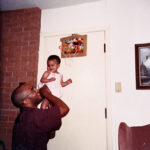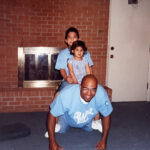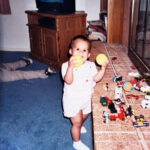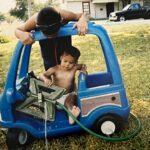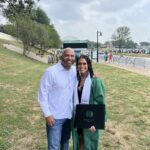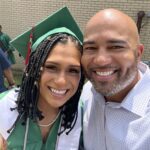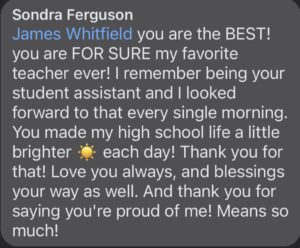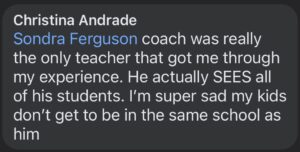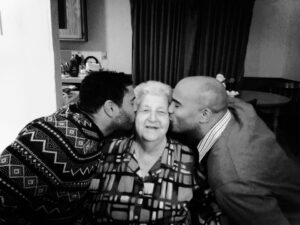In about a month you’ll turn 22. It’s so hard to believe that much time has passed since I was blessed with your presence. It feels like only yesterday we were bringing you home from the hospital. You gave a new, unique perspective to my life. Your presence made me officially a “girl dad”. As I looked into your beautiful brown eyes you strengthened me and made me weak in the knees at the same time.
Elements of Joy
You’ve brought me so many joyous memories throughout the years…
The “but daddy” eyes.
The shoulder rides.
The faces you made when I tossed you in the air.
The roller-coaster, holding you in my arms, whirling around the room, up and down, round and round.
The endless horsey rides.
The performances on the “stage” that was Ma’s fireplace.
The little blue car rides.
The swings – “higher daddy, higher” to the point of flipping out of the swing and landing on your back – me, freaking out momentarily, only for you to jump up and say “AGAIN Daddy” – ummm, no ma’am.
The Barbies.
The American Girl dolls.
The bedtime stories, sweet goodnight kisses, and “love you, daddy”.
Trying my best to do something halfway decent with your hair.
Hannah Montana.
The softball tournaments that lasted all weekend in the Texas sun. Those softball chants, tho, Lo.
One Direction.
Makeup enters the party.
Being able to go to the same middle school together (how lucky were you to have your dad as an assistant principal all three years of middle school).
Harry Styles mania.
Throughout the years, your unmatched self-motivation to go above and beyond in all you endeavored (athletics, academics, etc).
The banquets.
The birthday parties (which planning for the next party was to always begin before the current party was even over).
The daddy-daughter lunches/coffees.
Your dedication and commitment.
Your resolve.
Your vulnerability.
Your creativity.
Your brilliance.
Your beauty.
Your heart.
Your passion for life.
Your joy.
This list could go on and on. So many beautiful memories, leaving deep and lasting imprints on my heart. And I am a better man today because I was chosen to be your father. The long and the short of it is this – you’re one of my greatest joys, baby girl.
Karaoke Queen
As I watched you get up there and belt out karaoke this weekend in Music City (Nashville, TN) I may have shed a tear or two. You didn’t see it. It was very discreet…but it happened. You, my love, exude a joyous energy that fills every room you enter. You turned a slow night at the karaoke joint into a bustling movement in a matter of minutes with your unique ability to let loose, have fun, encourage others, and draw people in. You are JOY!
College Grad
Today, as I watched you accept that college diploma I couldn’t help but tear up again. College graduate added to the list of awesome things I’ve been able to witness along this journey of being your father. It’s so surreal. I am so proud of you, Lo. And I have no doubt that Ma is smiling down with pride as her great granddaughter joins her as an alumni of UNT – Go Mean Green.
The Nest Episode
And now begins another step in your journey. Beautiful opportunities will surely present themselves in short order. And as you venture into this next chapter there will be days that will seek to strip you of your joy – to diminish your light. Such is life. In these moments, I hope that you always give yourself the space to be still. I wish you the discernment and awareness to recognize when your joy is being threatened. And the strength and fortitude to reclaim that joy quickly and keep shining your brilliance into the world.
To be along for this ride is truly one of God’s greatest gifts. You’ve filled my heart with joy. I am so very proud of you. And I wish you all the joy in the world as you navigate future days. You have so much to offer the world, my love. I’m excited to watch your journey unfold.
Keep singin’ loud, dancin’ wild, and dreamin’ big, sweet girl! I love you!
